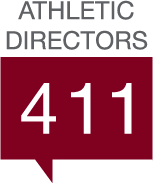Finding qualified coaches is a crucial responsibility for athletic directors, as the quality of coaching directly impacts the success and development of student-athletes. To ensure a thriving sports program, it is essential to identify coaches who not only possess technical expertise and a solid track record but also align with the school’s values and culture. This article provides practical tips for athletic directors on effectively recruiting and selecting top-tier coaching talent, emphasizing the importance of thorough vetting processes, leveraging networks, and prioritizing candidates’ ability to foster positive, inclusive, and growth-oriented environments for student-athletes.
Understanding the Modern Hiring Landscape
The traditional approach to hiring coaches—posting a vacancy, reviewing applications, and conducting interviews—has grown more complex. Athletic directors must now navigate a landscape where attracting and retaining the right talent demands a strategic and multi-faceted approach. It’s extremely important to define what you value in a coach, beyond mere knowledge of the sport, to include qualities like educational philosophy, student-athlete welfare, and sportsmanship.
Expanding the Applicant Pool
To find the best candidates, schools must cast a wide net. Traditional methods, such as internal postings, should be complemented by digital platforms like edjoin.org and LinkedIn. Engaging in state association websites and leveraging school human resources can further broaden the reach. Networking with colleagues, former coaches, and college contacts can also yield potential candidates who might not apply through conventional channels.
Composing Effective Interview Panels
Creating a diverse interview panel is crucial. Including administrators, non-coaching teachers, parents, and even students can provide a well-rounded perspective on candidates. This diversity helps ensure that the chosen coach aligns with the educational and cultural values of the school and can enhance the panel’s ability to evaluate how well a candidate might integrate into the school community.
Asking the Right Questions
The quality of interview questions can significantly impact the hiring process. Beyond standard questions about coaching philosophy and past experiences, it’s essential to probe deeper. For example, asking candidates to describe specific incidents of poor sportsmanship and their responses can reveal their values and conflict resolution skills. Questions about handling adversity, running tryouts, and promoting lifelong learning can provide further insights into a candidate’s alignment with the school’s mission.
Conducting Thorough Reference Checks
After identifying top candidates, thorough reference checks are crucial. Open-ended questions about the candidate’s strengths, weaknesses, and communication skills can validate the interview impressions and uncover any red flags. References can provide a candid view of how the candidate interacts with others and handles criticism, essential traits for a successful coach.
Retaining Quality Coaches
Once a suitable coach is hired, retention becomes the next challenge. Athletic directors should mentor new hires, introducing them to the school’s policies, culture, and expectations. Recognizing and supporting coaches is vital. Publicly praising their efforts, defending them against unreasonable criticism, and being available for support can foster loyalty and job satisfaction. Retaining experienced and dedicated coaches provides stability and consistency for student-athletes and the program.
Navigating Challenges and Leveraging Opportunities
Hiring the right coach is a multi-step process fraught with challenges but also filled with opportunities. Athletic directors must balance transparency and confidentiality, especially in high-profile searches. Utilizing search firms can offer anonymity and broader reach, but it’s essential to maintain control over the final decision.
It’s imperative for ADs to have a clear, methodical approach, involving SWOT (strengths, weaknesses, opportunities, and threats) analyses and careful selection of search committee members. Athletic directors should remain actively involved in identifying and evaluating candidates, rather than excessively relying on search firms or third parties. By adopting these practices, athletic directors can build robust coaching teams that drive their athletic programs to success, ensuring that both coaches and student-athletes thrive.
Resources:
Athletic Director U
NFHS
Coach & A.D.




